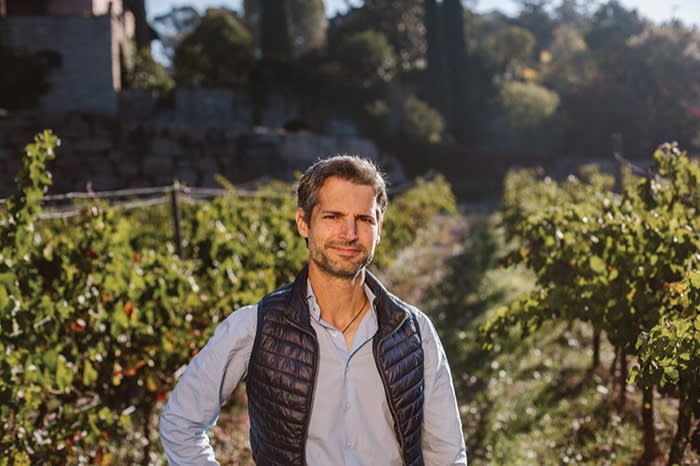It could be said that Ramon Roqueta was born to make wine. He is the fifth technology of his household to operate Roqueta Origen, a group of wineries in Catalonia, north-east Spain. In 1898, his wonderful-wonderful grandfather proven the 1st of the family’s 4 wineries, but the business’s origins date back again even additional.
Historical information exhibit that Roqueta’s ancestors commenced building wine at the Masia Roqueta farmhouse, in the Bages location north of Barcelona, in 1199. A lot more than 800 yrs afterwards, the company’s headquarters are on the identical web-site.
Roqueta turned to Iese Business University in Barcelona to get ready for his eventual succession. Right after teaching at wineries in France, Australia and the US, he enrolled on the Iese MBA in 2005 to sharpen his enterprise and leadership expertise. “It’s not only about building wine, but offering it and building the enterprise successful,” he points out.
Right after graduating in 2007, Roqueta worked in consulting, then took up a management part in the household enterprise in 2009. It was about this time that he enrolled in Iese’s Alumni Discovering Software, a series of no cost teaching sessions concentrating on specific locations of enterprise. More than quite a few yrs, he took classes on household enterprise troubles such as succession organizing and running household conflicts.
He learnt how to produce a household protocol, a doc that codifies the business’s values, vision and mission, alongside with procedures of ownership, governance and management. The method included the several household associates, which bolstered unity. “This has been a aggressive advantage for the business about the generations,” states Roqueta, who took about from his father, Valentí, as chief government in 2014.

Other enterprise educational institutions are emulating Iese by launching courses that concentration on the requires of household corporations, which are inclined to take a extended-phrase outlook on investments as an alternative of chasing quarterly returns. Family corporations usually have strong stakeholder relationships and much more faithful workforces than other businesses. They are also usually much more hazard-averse and have much less financial debt.
“We can study quite a few points from household corporations,” states Allan Discua Cruz, director of the Centre for Family Business at Lancaster University Management University in north-west England. “There are so many concepts and dynamics that are really worth comprehending, such as enterprise continuity, legacy, stewardship and resilience.”
Some academics say that every single enterprise scholar should really study about household enterprise. “With the bulk of financial exercise and private sector employment in many European international locations produced by household corporations, it is remarkably probable that our graduates will be functioning for just one at some stage,” states Marta Elvira, chair of household-owned enterprise at Iese.
She notes an growth of career options, such as at the developing ranks of household places of work, in addition to work at businesses that company household corporations, such as banking institutions and consultancies. Other, much more entrepreneurial, pupils are intrigued in establishing new enterprise dynasties.
Business educational institutions in Europe are therefore sharpening their concentration on household enterprises, which make up 60 per cent of the region’s businesses — from smaller corporations to multinationals such as Exor, the financial investment business owned by Italy’s Agnelli household, and Germany’s Volkswagen, the carmaker managed by the Porsche and Piëch families.
Morten Bennedsen, academic director of the Wendel Worldwide Centre for Family Company at Insead enterprise school in France, factors out that household enterprise exploration only emerged as an academic discipline in the 1980s. “Business educational institutions have not typically targeted on household corporations. That is modifying as awareness grows,” he states. Numerous business people even now do not feel their families need a enterprise schooling, Bennedsen states, but adds: “As these businesses scale, there is a need to professionalise the management and governance. That is what you simply cannot study from the household.”
About 10 per cent of the one,000 MBA pupils who enrol at Insead each individual yr are from household-owned businesses. Commonly, they are heirs, whilst present homeowners take aspect-time government courses to deal with the pressures of preserving a household legacy. Insead presents a household enterprise elective in its MBA, in addition to an government programme that addresses the troubles these businesses facial area.
Family corporations are occasionally said to be particularly resilient in the course of crises, but the exploration is inconclusive. Daniela Maresch and Matthias Fink at France’s Grenoble Ecole de Management uncovered that such corporations noted significantly much more fiscal losses than other folks in the course of the pandemic. The initial stabilising outcome of household involvement can switch into a liability as crises unfold, the professors say, as the burden of responsibility ignites household conflict.
Milan’s SDA Bocconi University of Management ideas to launch new government courses for household corporations future yr. “There is now a more robust concentration on hazard mitigation and resilience,” states Alessandro Minichilli, professor of corporate governance at the school. “The demand from customers for enterprise schooling in locations like succession organizing, sustainability and governance is massive.”
Rania Labaki, head of the Edhec Family Business Centre in Lille, France, factors out that only thirty per cent of household enterprises make it to the next technology, with the survival charge dropping precipitously with each individual succession.
The most significant transfer of prosperity on history is envisioned in the coming 10 years as baby boomers retire. In Europe, at minimum $3.2tn will modify arms by 2030 and, in many European economies, the amount of household enterprise leaders about 70 has been rising in the past 10 years.
Labaki thinks succession is the place enterprise educational institutions can definitely make a big difference: “Young heirs frequently facial area a problem of legitimacy, and they need our competencies to guide the household enterprise,” she states.